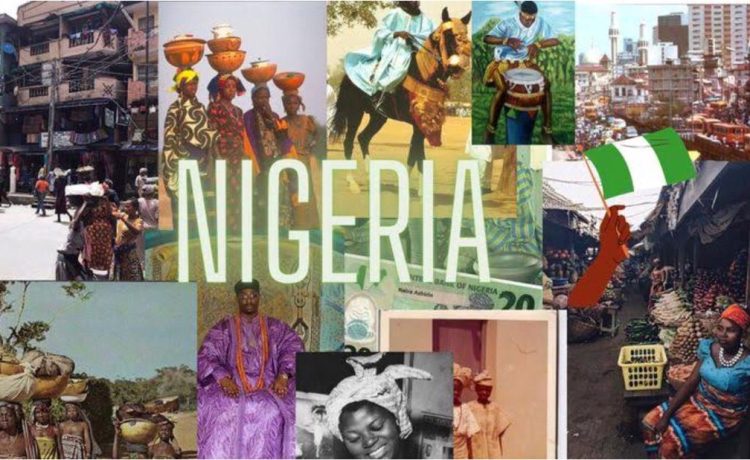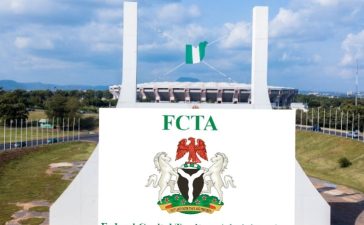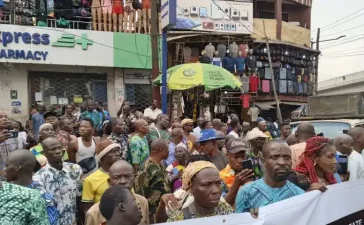Nigeria is standing at the edge of a digital breakthrough that could reshape its economy, drive financial inclusion, and redefine governance—if properly harnessed.
This was the rallying call made at the 35th annual Finance Correspondents Association of Nigeria (FICAN) conference in Lagos, where the Lagos Business School (LBS) joined policymakers, banking leaders, and tax authorities to spotlight the opportunities and challenges in Nigeria’s fast-evolving digital landscape.
The conference, themed *”Bracing for the Digital Economy in Nigeria: Taxation, Banking and Finance,”* brought together key players from the Central Bank of Nigeria (CBN), Federal Inland Revenue Service (FIRS), and major banks to shape the next phase of the country’s digital economy.
Representing the Dean of LBS, Professor Olayinka David-West, at the event, Professor Akintola Owolabi of the school’s Cost and Management Accounting department, underscored the urgency of coordinated digital transformation across all sectors.
“This digital revolution isn’t just about growth metrics,” said David-West. “It is reshaping how Nigerians live, work, transact, and govern.”
E-commerce, Fintech, and Financial Inclusion: The Building Blocks
Nigeria’s e-commerce market is expected to surpass $16 billion by 2030, with leading platforms like **Jumia and Konga** spearheading this surge. Logistics innovators such as **Kwik** and **GIGL** are also enabling last-mile delivery, forming entirely new value chains and job opportunities.
The financial sector is a primary engine of this transformation. In 2024 alone, **Nigeria’s fintech industry attracted over $2 billion in investment**, maintaining its dominance on the African continent. Banks like **GTBank** and **Access Bank** are deploying artificial intelligence (AI) and machine learning (ML) to drive fraud detection, credit scoring, and customer experience.
Digital Taxation and Policy: Opportunity Meets Responsibility
In a bid to capture value from this fast-growing ecosystem, Nigeria introduced a 6% **Digital Services Tax (DST)** on non-resident providers in 2022, complementing VAT on foreign services. Instruments like the **N50 electronic transfer levy** on transactions above N10,000 are also generating new revenue streams.
David-West argued that digital payment systems can help formalise Nigeria’s vast informal sector, boosting **tax compliance**, financial inclusion, and economic transparency.
“The fusion of digital finance and taxation creates a feedback loop of efficiency, inclusion, and data-driven policymaking,” she noted.
Infrastructure and Skills: The Roadblocks to Watch
Despite rapid digital adoption—now at 43.5% internet penetration with 163 million users as of March 2024—Nigeria still battles critical **infrastructure gaps**, especially unreliable electricity and patchy broadband coverage in rural areas.
Furthermore, a **digital skills gap** continues to limit the full participation of Nigerians in the digital economy.
David-West stressed that **regulatory innovation**—such as the **CBN’s regulatory sandbox**—is a vital tool for balancing innovation with consumer protection.
Industry Voices: A Call to Action
FICAN Chairman, **Mr. Chima Titus**, described the digital economy as no longer a frontier but the **backbone of modern economic growth**. He cited the ICT sector’s 18.3% contribution to GDP in Q2 2025 and over **N600 trillion** in digital transactions in just six months.
He also applauded the **CBN’s Payment System Vision 2020**, which integrates AI, blockchain, and cross-border payments under the African Continental Free Trade Area (AfCFTA), aiming to future-proof Nigeria’s financial ecosystem.
‘’Without a fair, efficient tax structure, no digital economy can scale sustainably,” Titus concluded.
As Nigeria navigates this transformative era, the consensus from experts is clear: **collaboration, investment, and innovation** must drive the agenda if the nation hopes to unlock the full potential of its digital future.







